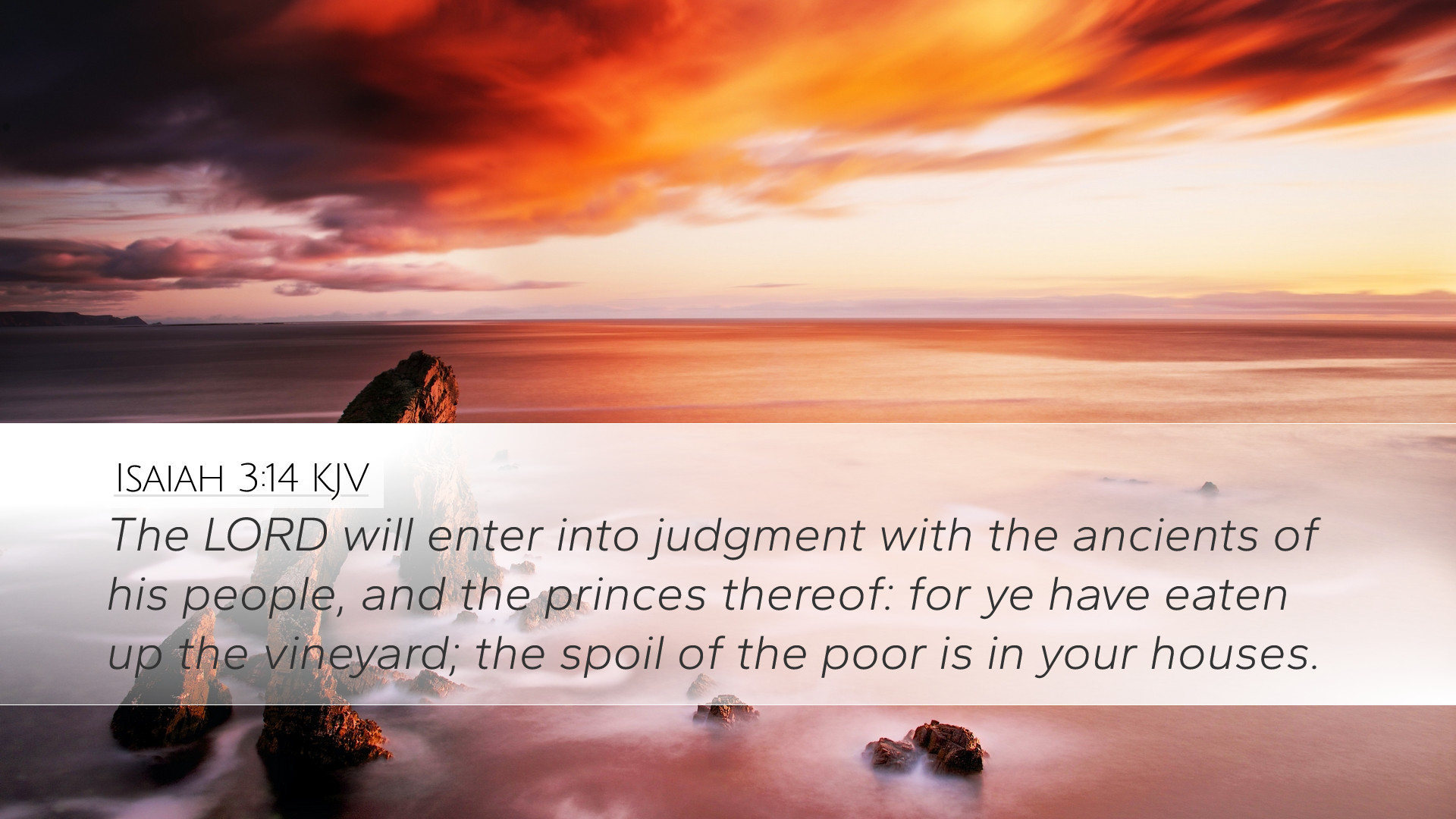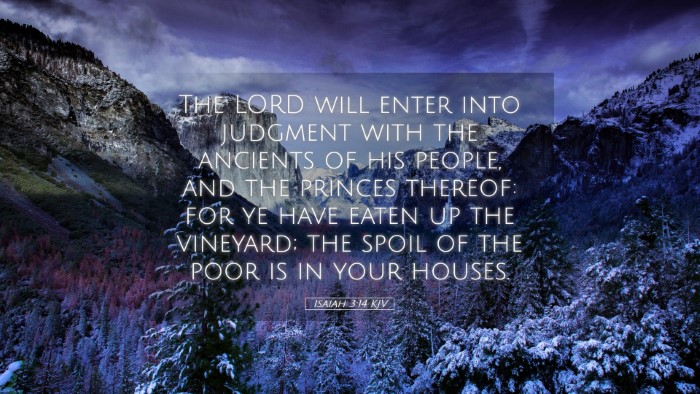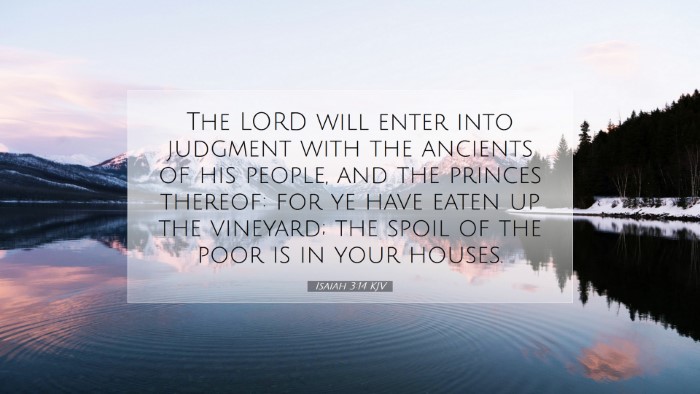Commentary on Isaiah 3:14
Isaiah 3:14 states:
The LORD will enter into judgment with the elders of His people, and His princes; for ye have eaten up the vineyard; the spoil of the poor is in your houses.
Contextual Analysis
This verse is part of a larger prophetic oracle delivered by Isaiah that critiques the moral and social decay in Judah. The specific audience here includes the elders and princes, who are charged with the responsibility of governance and ensuring justice.
Historical Background
Isaiah prophesies during a time of great national turmoil, characterized by the spiritual decline of Israel, leading to societal injustice. As leaders, the elders and princes had substantial influence over the wellbeing of the community. Their failure to uphold justice and righteousness directly contributed to the oppression of the vulnerable, especially the poor.
Theological Implications
This passage encapsulates several critical theological themes:
- Divine Judgment: The idea of God entering into judgment with earthly leaders emphasizes God’s sovereignty over social and political structures. It highlights the accountability of leaders before God for their actions.
- Social Justice: The “vineyard” imagery reflects the land and the people of Israel, suggesting that leaders have not only exploited resources but have also oppressed the people they were meant to protect.
- The Poor’s Plight: The mention of the poor’s spoil in the leaders’ homes indicates a direct indictment of social injustice. This represents a critical call for compassion and equitable treatment of all community members.
Commentary Insights
Matthew Henry
In his concise yet profound observations, Matthew Henry emphasizes that the leaders are indicted not just for their mismanagement, but for a betrayal of moral responsibility. They are likened to those who have "eaten up the vineyard," pointing to their greed and selfish exploitation. Henry stresses that the Lord's judgment is imminent, which serves as a warning to those in authority that their actions do not escape divine scrutiny.
Albert Barnes
Barnes elaborates on the significance of the terms used in this passage. He highlights that the “elders” and “princes” represent the civil authority in Israel, emphasizing the expectation that they should govern with integrity and justice. Barnes notes that the “vineyard” metaphor implies not only the people’s welfare but also their prosperity. The judgment pronounced showcases God's displeasure at their failure to act justly, signifying the moral responsibility of leaders to care for those they govern.
Adam Clarke
Clarke provides a detailed examination of the social dynamics reflected in this verse. He points out that the “spoil of the poor” represents the systematic injustice faced by the marginalized in society. Clarke's insights delve into the relational aspect of leadership, highlighting that rulers are stewards of God’s grace and are accountable for their treatment of the impoverished. He underscores that this verse serves as a timeless reminder of the critical duties of leaders, for their actions have real consequences on society.
Application for Leaders and Believers
This scripture challenges not only the leaders of ancient Israel but also contemporary leaders in the church and society. It calls for self-examination and accountability in leadership roles:
- Responsibility: Leaders are reminded of their significant role as stewards who must govern with integrity and a heart for justice.
- Awareness of Social Issues: Pastors and church leaders should be attuned to the struggles of their communities, advocating for justice on behalf of those who find themselves marginalized.
- Spiritual Vigilance: Individual believers are called to reflect on their actions and their impact on others, fostering an environment of support and community.
Conclusion
Isaiah 3:14 serves not just as a historical indictment but as a profound reminder of the enduring principles of justice and accountability before God. It calls for a dedicated response from both leaders and ordinary believers alike to ensure that the way they govern, interact, and support the vulnerable is aligned with God's call for righteousness. As this verse resonates through time, may it inspire a renewed commitment to justice, stewardship, and compassion in our communities.


